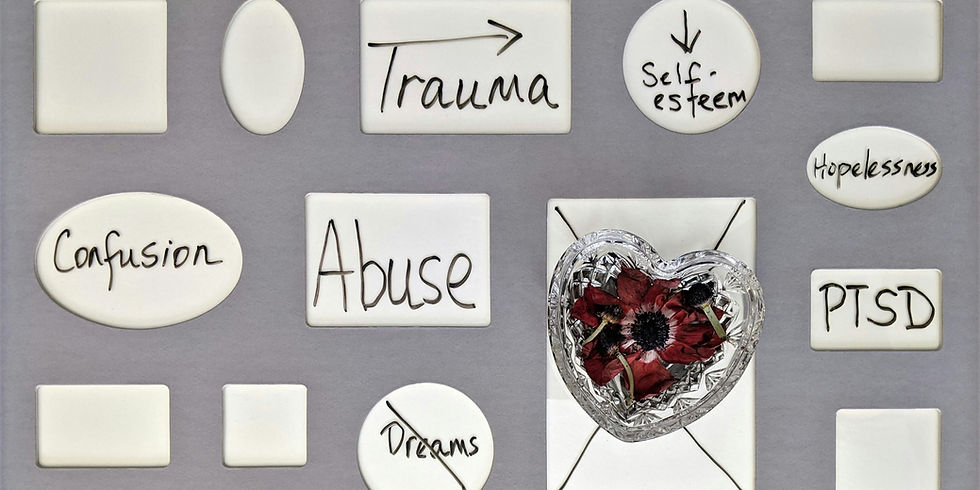The Importance of Mental Health Therapy in Adolescent Mental Health
- Yourdeline Sertyl
- Nov 12, 2024
- 3 min read
Adolescence is a whirlwind. It's a time of rapid physical growth, hormonal fluctuations, social pressures, and the ever-present struggle to forge your identity. Unsurprisingly, it's also a period when mental health challenges can become more pronounced. Fortunately, mental health therapy can be a powerful tool for adolescents navigating these complexities.
Why is mental health therapy so crucial for adolescents?
Early intervention is key: Addressing mental health concerns early can prevent them from snowballing into more serious issues that impact other aspects of life, like schoolwork, friendships, and family relationships. Early intervention can also prevent the development of unhealthy coping mechanisms that adolescents might rely on in the future.
Developing healthy coping skills: Therapy equips adolescents with a toolbox of strategies to manage stress, anxiety, and difficult emotions. These skills can be invaluable throughout their lives, helping them navigate challenges with greater resilience and emotional agility.
Improved communication: Therapists create a safe space for adolescents to express themselves openly and honestly. This can be especially helpful for adolescents who struggle to articulate their feelings or who come from families where open communication is not the norm. Therapy can help them develop assertive communication skills, leading to stronger and healthier relationships with family and friends.
Building self-esteem: Adolescence can be a time of self-doubt and insecurity. Therapy can help adolescents develop a positive self-image by focusing on their strengths and accomplishments. Therapists can also help them challenge negative self-talk and develop a more compassionate inner voice.
Reduced risk of self-harm and suicide: Early intervention through therapy can significantly decrease the risk of adolescents engaging in self-harming behaviors or suicidal ideation. Therapists can help adolescents identify triggers for self-harm, develop healthier coping mechanisms, and create a safety plan in times of crisis.
Common adolescent mental health concerns that therapy can address:
Anxiety and depression: These are prevalent issues among adolescents, and therapy can provide a range of evidence-based techniques for managing them effectively. Cognitive Behavioral Therapy (CBT) is a common approach that helps adolescents identify and challenge negative thought patterns that contribute to anxiety and depression.
Eating disorders: Therapy can help adolescents develop healthy relationships with food and their bodies. Therapists can address the underlying causes of eating disorders, such as anxiety, low self-esteem, or perfectionism, and equip adolescents with tools for healthy eating habits and body image acceptance.
Attention Deficit Hyperactivity Disorder (ADHD): Therapists can teach adolescents strategies to manage ADHD symptoms like inattention, hyperactivity, and impulsivity. This may involve techniques for improving focus and organization, managing time effectively, and developing emotional regulation skills.
Substance abuse: Therapy can help adolescents understand the root causes of substance use, which can range from peer pressure to self-medication for underlying mental health issues. Therapists can help adolescents develop healthy coping mechanisms and build a support system to help them resist substance use.
Finding the right therapist is an important step:
Talk to your doctor: They can provide referrals to qualified therapists specializing in adolescent mental health.
Consider factors like: The therapist's experience working with adolescents, their therapeutic approach (CBT, mindfulness, etc.), and their personality fit with the adolescent. It's important for the adolescent to feel comfortable and safe opening up to the therapist.
Seek therapy together: Attending initial sessions with your child can help them feel comfortable and supported as they embark on the therapy journey. Therapists can also provide guidance on how parents can best support their child's mental health at home.
Remember:
Seeking help is a sign of strength, not weakness. Mental health challenges are common, and therapy is a proven way to manage them and improve your well-being.
Therapy is a collaborative process. Active participation from both the adolescent and the therapist is key to success. The adolescent needs to feel invested in the process and be willing to try the strategies and techniques discussed in therapy.
Investing in adolescent mental health therapy can have a significant positive impact on their present and future well-being. Therapy can equip them with the tools they need to navigate the challenges of adolescence and build a strong foundation for mental health throughout their lives.





Comments